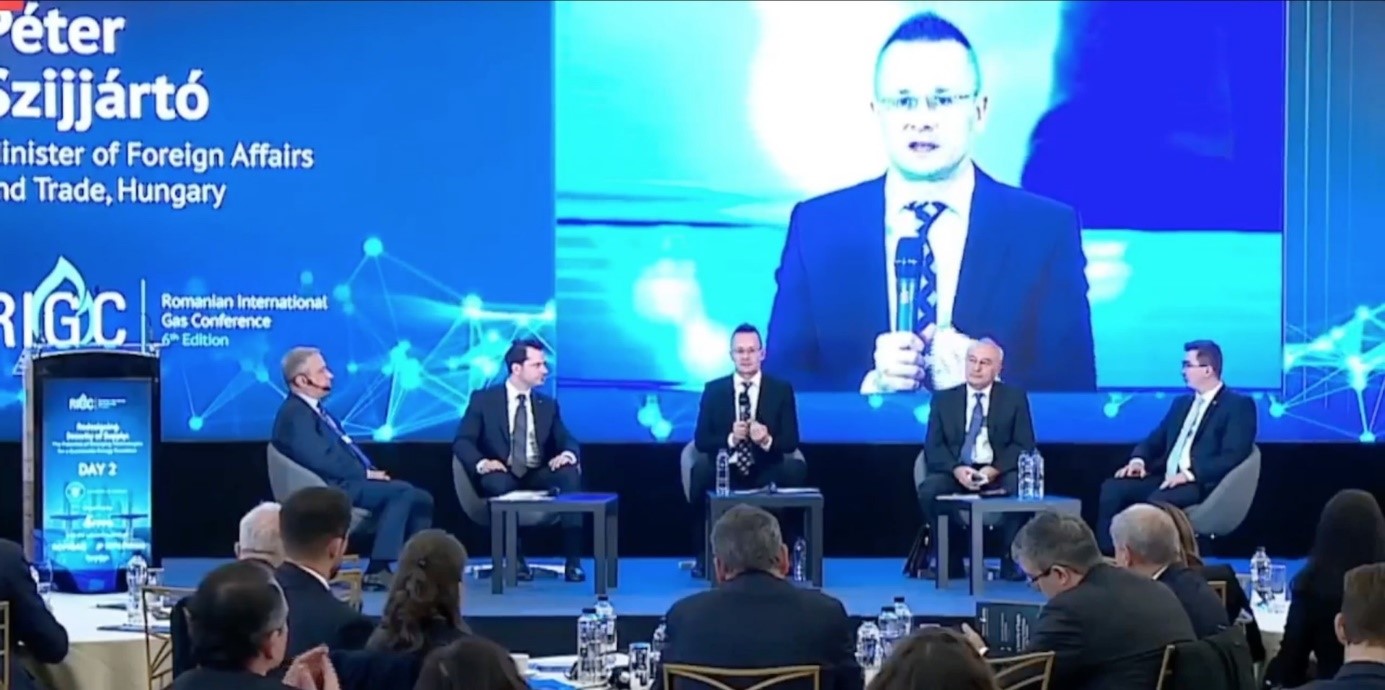
On 8 November 2023, Péter Szijjártó, Minister of Foreign Affairs and Trade of Hungary paid a working visit to Bucharest in order to participate in the ministerial panel of the 6th Edition of the Romanian International Gas Conference (RIGC-2023) and to hold bilateral talks with Sebastian-Ioan Burduja, Minister of Energy, Sorin Mihai Grindeanu, MIjnister of Transport and Infrastructure and Ștefan-Radu Oprea, Minister of Economy, Entrepreneurship and Tourism, as well as with Hunor Kelemen, President of the Democratic Alliance of Hungarians in Romania (UDMR/RMDSZ).
In his address during the Ministerial Panel of RICG-2023, Péter Szijjártó, Minister of Foreign Affairs and Trade of Hungary emphasized that there was a clear common understanding and pledge between Hungary, Romania, Moldova and Azerbaijan that we must develop the gas infrastructure, increase the capacities in the South-East European region the financing of which should partly be borne by the EU since it is an all over European interest. Choosing the sources and scales of one’s gas imports is not a matter of political decision but of the available infrastructure networks and of national sovereignty. They agreed with Minister Sebastian Burduja that they will further grow the capacities of the two countries’ gas interconnections and will begin the preparation of setting up a new interconnection of the electric power systems. In agreement with Minister Sorin Grindeanu, Minister Péter Szijjártó confirmed that they keep the pace set by last years’ bilateral agreements of infrastructural development in terms that every fifth year a new motor-way connection is opened between the two countries. The Hungarian minister announced that the construction plan of the bridge at Magyarcsanád had been completed and subsequently submitted for EU funding, while the establishment process of the border crossing point at Kübekháza-Óbéba/Beba Veche had started. At the meeting with Hunor Kelemen, President of RMDSZ/UDMR, Minister Péter Szijjártó underlined: the Government of Hungary considers the cooperation with Romania is of strategic importance the strongest basis and resource of which is the Hungarian national minority in Romania. It is the national interest of Hungary that Romania joins the Schengen area as soon as possible. One of the reasons for it is that Romania is the second largest export market of the Hungarian economy, and one of its objectives is that borders should connect and not separate neighbouring countries; accordingly, for instance, with Romania joining the Schengen zone ten new border crossing points will be opened automatically between the two countries. The continuation of inhibiting the orderly functioning of the roman catholic school in Marosvásárhely/Târgu Mureș is unacceptable, this issue is high on the Hungarian government’s bilateral agenda. It is in Hungary’s interest that RMDSZ/UDMR scores well in every election to be held in Romania in 2024 since a strong RMDSZ/UDMR with representation in Bucharest can positively contribute to the development of Hungarian_Romanian bilateral relations.


